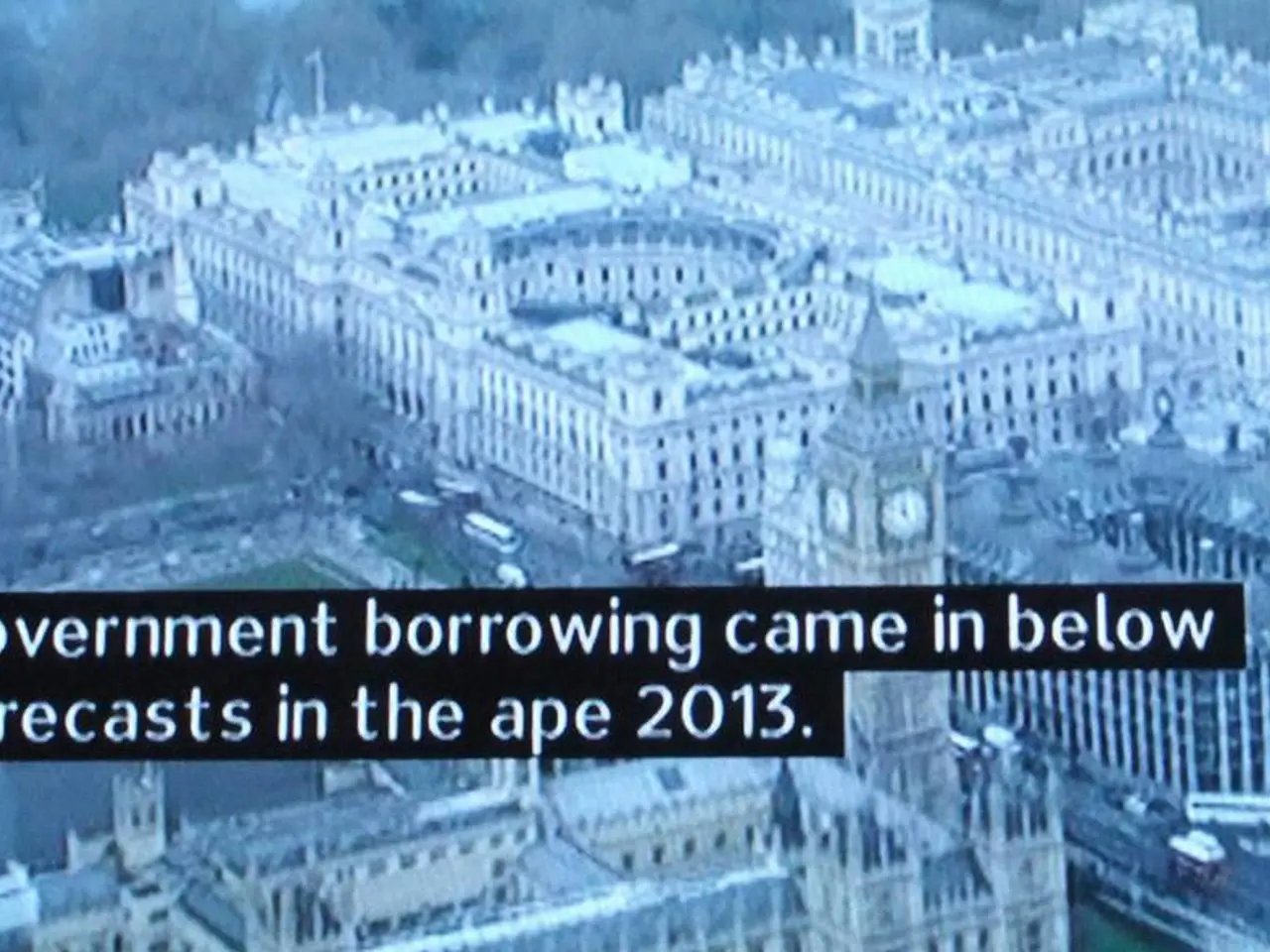Netanyahu acknowledges underlying truths openly
The Enduring Vision of Greater Israel: A Historical Overview
The long-term vision of Greater Israel, a nationalist and religious ideology, extends Israel's borders beyond its current internationally recognized boundaries, often drawing from biblical descriptions such as "from the Brook of Egypt to the Euphrates"[2][3]. This vision, rooted in early Zionist thought, has been a significant factor in shaping Israel's history and politics.
The concept of Greater Israel can be traced back to the works of figures like Theodor Herzl, an early Zionist advocate[1]. However, it was during the post-1948 period that the idea gained political momentum, with opposition from Revisionist Zionists who sought a more expansive state[1].
The 1967 Six-Day War marked a turning point, as Israel captured territories including the West Bank, Gaza Strip, Sinai Peninsula, and Golan Heights. This expansion energized the Movement for Greater Israel, fostering Jewish settlement in these areas as a means to cement Israeli control[1][3].
Politically, the ascendance of the Likud party in 1977, with Menachem Begin’s leadership, was a pivotal moment for Greater Israel ideology. Begin promoted Jewish settlement in Judea and Samaria (the West Bank) but refrained from officially annexing these territories, wary of jeopardizing Israel’s identity as a Jewish state by incorporating large Palestinian populations[1]. Subsequent Israeli leaders like Yitzhak Shamir further supported settlement expansion, providing funding and legitimization to the settler movement[1].
In recent years, Israeli Prime Minister Benjamin Netanyahu has publicly embraced or echoed Greater Israel rhetoric, reaffirming the vision as a historic mission[3][4]. The ongoing expansion of Jewish settlements and military incursions into Palestinian and Syrian territories reflect efforts by some Israeli factions to realize the Greater Israel project.
Western allies, particularly the United States, have had complex roles in this process. While often supporting Israel’s security, there are tensions regarding settlement policies and territorial annexations. However, some alliances have tacitly enabled settlement expansion by providing military and diplomatic support over decades, thus indirectly influencing the realization of Greater Israel ambitions[1][3].
In conclusion, the historical context involves early Zionist visions, pragmatic state-building compromises, the transformative effects of the 1967 war, the rise of right-wing Israeli political movements, and the religious-nationalist framing of territorial claims. The long-term goal shaped by these forces is an Israeli state expanded across biblical and historic territories, pursued through warfare, settlement building, and political influence, with both Israeli leaders and some Western allies playing roles in this ongoing process[1][2][3][5].
It is important to note that Netanyahu's project involves annexation, cleansing, and re-engineering the demographics of the region. The lectures on "international law" from these governments are hollow when they underwrite a settler-colonial blueprint drawn up over a century ago. The future of this conflict remains uncertain, but the persisting vision of Greater Israel continues to shape the political landscape of the Middle East.
- The concept of Greater Israel, with its roots in religious and nationalist ideology, has significantly influenced the world's opinion on the general news related to the Middle East.
- The policy-and-legislation enacted by some Israeli leaders, such as Menachem Begin and Benjamin Netanyahu, have been guided by the vision of Greater Israel, leading to ongoing war-and-conflicts and changes in the arts and culture of the region.
- The ongoing expansion of Jewish settlements and military incursions, driven by the Greater Israel ideology, has been met with complex responses from Western allies, particularly the United States, who often support Israel's security but express concerns about settlement policies and territorial annexations.
- The persisting vision of Greater Israel has not only shaped the politics of Israel but also continues to influence the broader world, drawing attention to the ongoing conflict in the Middle East and its implications for international relations and the general global economy.





